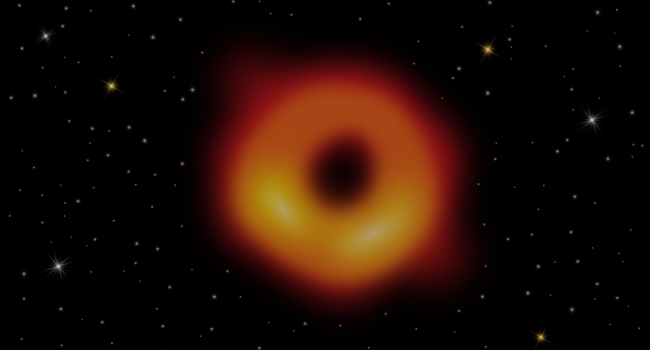
Sign Up for Updates
Connect
TOPICS
- Latest Blog
- Fiction
- Inspirational/Devotional
- Men's Christian Living
- Prophecy
- Women's Christian Living
- View All
ARCHIVES
On God, Black Holes, and the End of the Universe
Posted on Jun 20, 2019 Topic : Inspirational/Devotional, Men's Christian Living, Prophecy, Women's Christian Living

Have you seen it? The first picture ever taken of a black hole? A bright ring surrounds the dark center of the black hole’s shadow.
Strange, fantastic, and invisible though they are, the existence of black holes is considered almost commonsense in the twenty-first century. It was not long ago, however, that black holes were regarded as absurd—even outrageous—by the best scientific minds struggling to comprehend the invisible.
The story of the discovery and grudging acceptance of black holes reveals a lot about the strengths and weaknesses of human beings. The scientific revolution has proven that we have the ability to unlock the secrets of the universe and use the knowledge gained to advance our well-being.
But the struggle to accept and understand black holes also shows there are powerful forces at work in the human heart and mind that always threaten to hold science back or even reverse the progress mankind has made.
Even the most intelligent and dedicated people are susceptible to the four ancient barriers to understanding, and great scientists struggle like everyone else with limited perspective, misleading emotions, intellectual inertia, and a lack of humility.
The black hole epic shows that people have an especially difficult time with anything that is vast, strange, and invisible. It’s normal to want the emotional comfort of dealing with what is touchable, visible, familiar, and safe. But this need leads to an attitude that is a significant part of atheistic thinking and has caused science a lot of trouble: “If I can’t see it or touch it, it doesn’t exist, and I don’t have to think about it.”
Black holes explode that attitude by demonstrating in the most dramatic way possible that the universe cannot be understood on those limited terms. Black holes are too big and important to ignore; they force people to struggle with something that stretches their understanding and imagination to the breaking point. Black holes take our thinking right to the edge of the universe, where everything we know ends and the something—or nothing—on the other side is unfathomable. Black holes are frightening to the point of being unthinkable because they represent the end of everything that is familiar and reassuring.
I’ve talked to hundreds of people about religion, and have come to realize that many of them have the same reaction to God as those who doubted the existence of black holes. God is a far greater, far more mysterious and uncomfortable concept than even black holes. We can’t see or touch God, but as with black holes, we have reason to believe something or someone immensely powerful is there. But for many people the notion of God is even more unsettling than black holes because anything with the power to create this universe has to be vast and powerful beyond our ability to imagine.
We can’t rationally ignore the scientific evidence for God any more than we can ignore the evidence for black holes. Those who don’t want to believe in God are skeptical for many of the same reasons scientists didn’t want to believe in black holes—the idea is just too big and unnerving to deal with. For years scientists dismissed black holes as improbable, unprovable, and absurd, the same way many prominent atheists dismiss the idea of God.
The search for and acceptance of the existence of black holes shows that true science succeeds only when people shed their biases and follow the evidence wherever it takes them. Even though individual scientists faltered because of their prejudices and emotions, as a group, scientists have overcome the four barriers to truth by accepting the evidence in favor of the existence of black holes. They know they can never have perfect knowledge of these remote and mysterious objects, but most scientists have taken the scientific leap of faith and accept black holes as real.
It helps that the evidence is now sufficient so the leap is like that over a small stream rather than a canyon.

Read more in The Story of the Cosmos by Daniel Ray and Paul M. Gould

